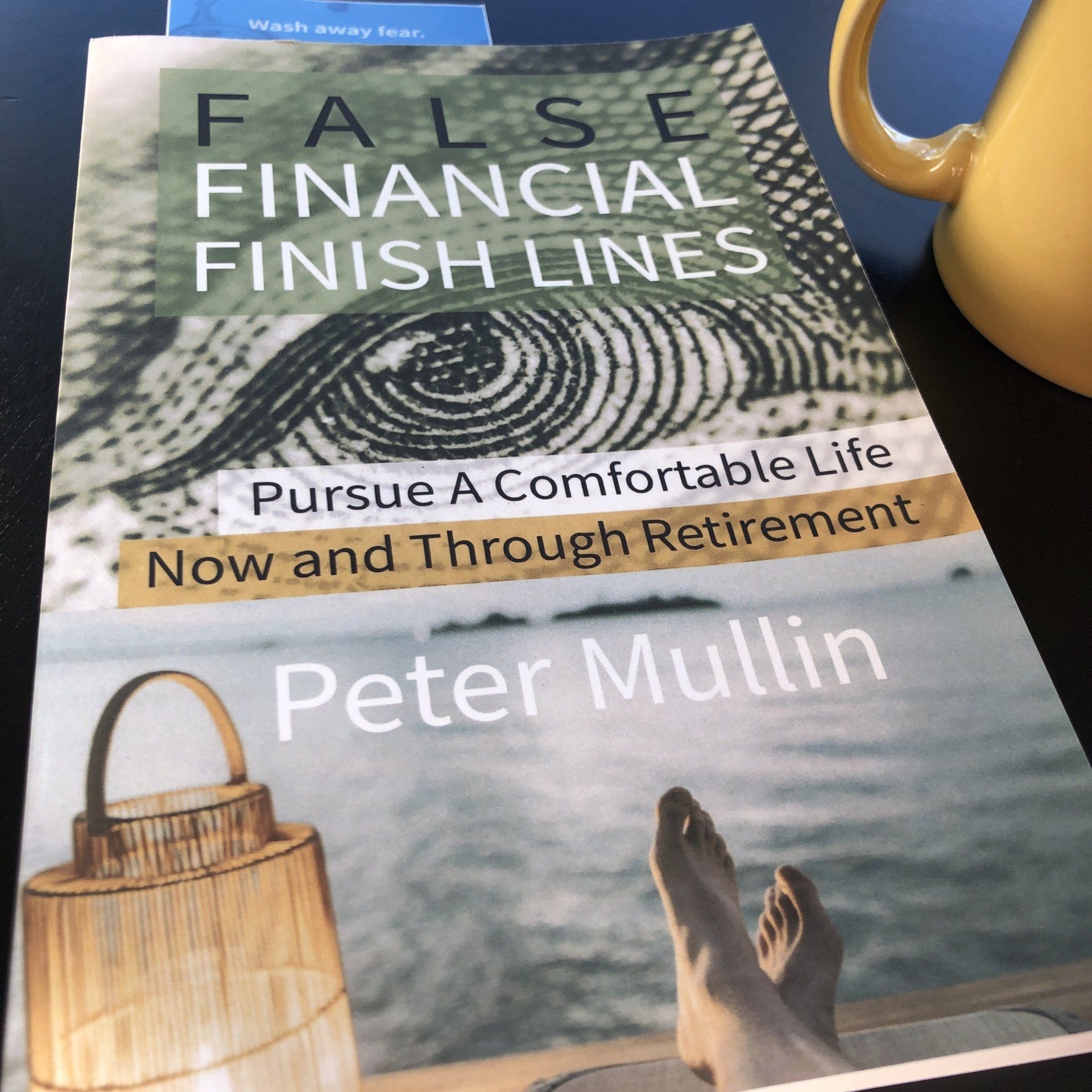PETER MULLIN RECOGNIZED AS ONE OF LPL FINANCIAL’S TOP FINANCIAL ADVISORS

FOR IMMEDIATE RELEASE
CONTACT:
PETER MULLIN, 320-259-7030
Peter@MullinWealth.com
PETER MULLIN RECOGNIZED AS ONE OF LPL FINANCIAL’S TOP FINANCIAL ADVISORS
MAPLE GROVE, MN — JANUARY 27, 2021 – PETER MULLIN, an independent LPL Financial advisor at MULLIN WEALTH MANAGEMENT in SAINT CLOUD AND MAPLE GROVE, today announced his inclusion in LPL’s Freedom’s Club. With more than 17,000 LPL-affiliated advisors nationwide, LPL awards this distinction to select advisors based on their business success*.
“On behalf of LPL, I congratulate PETER MULLIN on reaching this milestone in their professional career,” said Angela Xavier, LPL executive vice president, Independent Advisor Services. “Business owners, American investors and industries at large faced extraordinary challenges throughout 2020. In the advisor-mediated financial advice market, investors showed how much value they place on a trusting relationship with a financial advisor. We applaud Peter Mullin for his commitment to clients and resiliency as a business owner, and we are inspired by his dedication to making a meaningful impact in the lives of his clients. It is an honor to support Peter Mullin and wish his entire team continued success as they continue to add value for clients and in their business in the years ahead.”
PETER MULLIN is affiliated with LPL Financial, the nation’s largest independent broker-dealer** and a leader in the retail financial advice market. LPL provides the resources, tools and technology that support advisors in their work to enrich their clients’ financial lives.
###
About LPL Financial
LPL Financial is a leader in the retail financial advice market and the nation’s largest independent broker/dealer**. We serve independent financial advisors and financial institutions, providing them with the technology, research, clearing and compliance services, and practice management programs they need to create and grow thriving practices. LPL enables them to provide objective guidance to millions of American families seeking wealth management, retirement planning, financial planning and asset management solutions. LPL.com
*Achievement is based on top 30% of annual production among LPL Advisors only.
**Based on total revenues, Financial Planning magazine June 1996 – 2020
Securities offered through LPL Financial. Member FINRA/SIPC.
- Mullin's take on the "4% Retirement Rule"
- Navigate "Bad Portfolio Weather"
- Tips to Optimize Social Security





Articles and Assets
What are your Priorities?
Well it’s the end of the year. I just searched on Google for “market outlook 2018.” I came up with a little over 58-million “results.”
So should you be investing in stocks in 2018? The quick answer: It’s likely a prudent part of your portfolio. But it depends on your circumstances, right?
It’s apparently popular to throw your hat in the ring.
A mantra that you hear among disciplined professionals is to “stay the course.”
Then you hear “sell high, buy low.”
Who’s right?
The relief of a disciplined strategy is that it can be tailored to you. And tailor we think you should.
Yes, it’s possible that an investor may not utilize stocks in their portfolio at all. Or you may decide to go “all in” with a diversified stock portfolio.
(Side effects from tailoring a strategy may include increased confidence & persistence, apathy toward daily market reports, and increased focus on what really matters.)
Let’s begin with the “Why” of investing for you. Then you can request 15-minutes on the phone discuss your “how.”
So “Why Should You Invest”
Life changes and our “why” of investing ought to transform with life. Some invest for sport – they like the risk/reward of investing – they’re in it for the thrill. I don’t hang with this crowd.
Most of us ought to invest for things we want. Our money & our goals are serious. By investing in a diversified portfolio we can pursue things we want.
1. Living A Comfortable Retirement: Retirement is a noun. It’s up to you to really design and live a retirement that reflects you.
2. Purchasing a Home: Home is a place to live. It can take a down payment.
3. Passing an Inheritance on to Family:
4. Student Loan Shield: This idea is important for many Millennial graduates. Student loans can dominate your budget. But instead of accelerating those payments, what if you paid your required payments, and then invested the additional money that you were going to pay against your loan balance?
5. Emergency Reserves: You probably have read that it’s prudent to keep a relative healthy amount of cash in your checking/savings. Once you’ve achieved that, then you can consider investing additional funds. Go a step further and consider a non-retirement account for you and your house. You can spend this on cars, vacations or use it just as described in #4.
The Dow Jones has seen positive results, so far, in 2017. It’s unusual and sort of uncomfortable as the independent financial advisor. Why is it uncomfortable?
What would sting & linger longer? Finding $20 in the parking lot? Or finding a $20 parking fine on your windshield?
We’ve been finding a lot of metaphorical “$20’s” (i.e. “positive results”) in our portfolios this year. So the second we find a parking fine (or a few in a row) we’ll be sure to ask if stocks are still the right place to park our money.
Complacency can work against us, Dear Clients. Just keep recalling your long-haul strategy and your “why” of investing.
***
Peter Mullin is an independent financial advisor registered through LPL Financial. He lives in Rogers, MN with his family. He was born and raised in St. Cloud, MN. Mullin Wealth Management is located in Waite Park, MN.
The opinions voiced in this material are for general information only and are not intended to provide specific advice or recommendations for any individual.
Investing involves risk including loss of principal.
There is no guarantee that a diversified portfolio will enhance overall returns or outperform a non-diversified portfolio. Diversification does not protect against market risk.
All performance referenced is historical and is no guarantee of future results.
All indices are unmanaged and may not be invested into directly. No strategy assures success or protects against loss.









